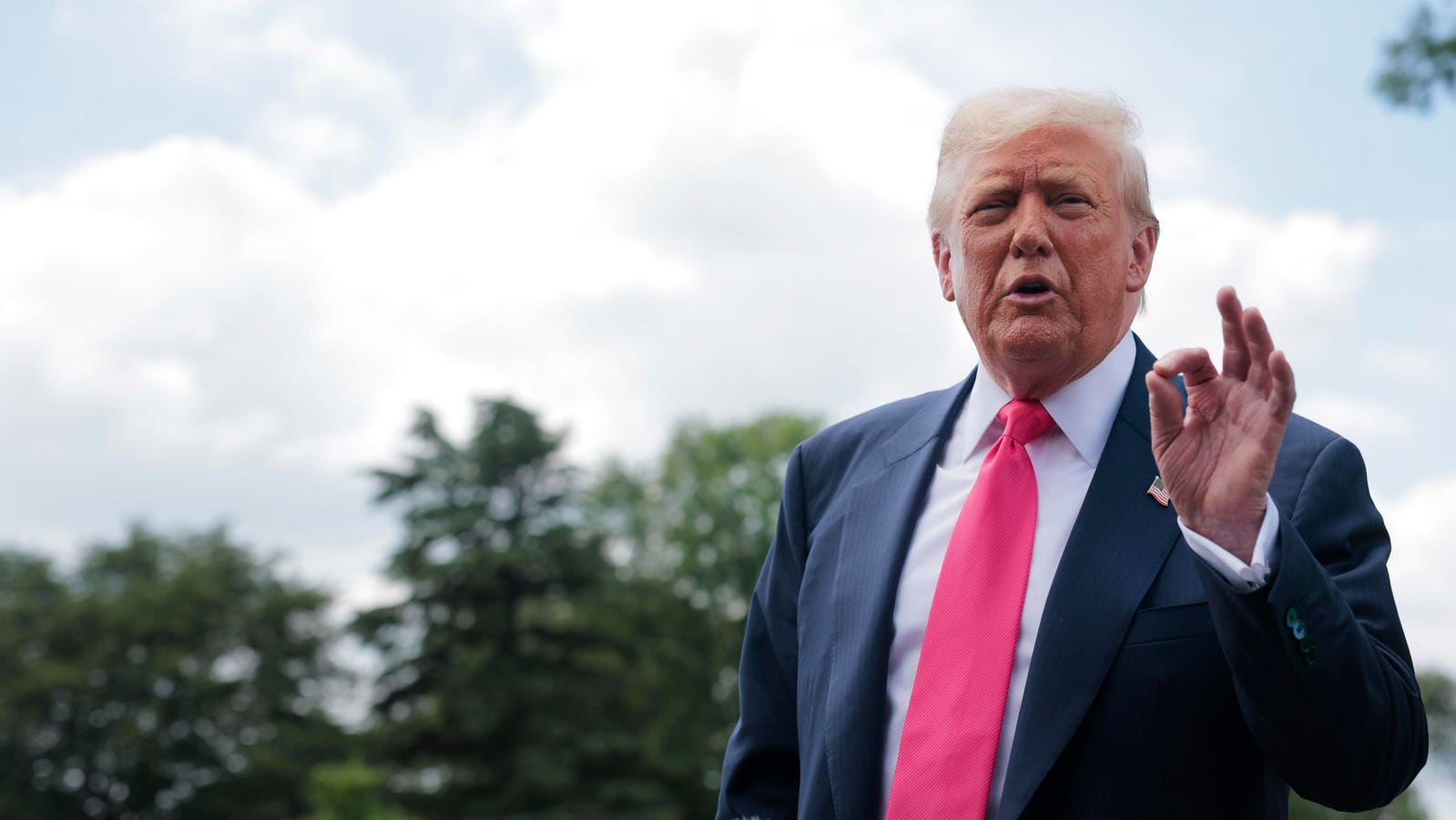Topline
President Donald Trump on Tuesday signaled support for legislation eliminating a capital gains tax on home sales, suggesting a reform on the tax policy—which has gone unchanged for decades—that a National Association of Realtors study found could impact millions of Americans.
Trump has said a bill eliminating the capital gains tax for home sales would be a “very big … More positive.”
Getty ImagesKey Facts
“We’re thinking about that,” Trump told reporters Tuesday in the Oval Office when asked about a proposal to end capital gains taxes on home purchases, though he also alluded to his latest push for the Federal Reserve to lower interest rates, saying, “If the Fed would lower the rates, we wouldn’t even have to do that.”
Under current tax law, single filers are exempt from paying taxes on capital gains of $250,000 or less for the sale of their primary residence, while married couples filing jointly are exempt on up to $500,000 of capital gains from the sale of their primary residence.
The amount filers can exclude from taxable income on capital gains—the profit after selling an asset—from selling primary homes has not been changed by Congress since 1997.
Rep. Marjorie Taylor Greene, R-Ga., earlier this month introduced a bill to eliminate capital gains taxes on home sales, arguing the tax policy is an “outdated, unfair burden—especially in today’s housing market,” prompting early support from Trump, who on July 13 said the legislation would be a “very big positive” and a “great incentive for a lot of people that really need money.”
How Many Homeowners Would A Capital Gains Change Impact?
A recent study from the National Association of Realtors found 34% of homeowners—29 million—own enough equity in their home that they could exceed the $250,000 cap if they sell, while 10%—8 million—may already exceed the $500,000 cap.
How Many Americans Pay The Capital Gains Tax On Home Sales?
About 8% of home sales in the U.S. made more than $500,000 in profit in 2023, requiring sellers to pay a capital gains tax, according to the property data firm CoreLogic. This is roughly 150% higher than the average between 2017 and 2019, CoreLogic said, and nearly double the 3% recorded in 2019. The firm noted capital gains exemptions on housing have “not kept up with” inflation or the rising cost of living, creating “challenging housing affordability” for millions of households.
Big Number
$422,800. That’s the median sales price for existing homes as of May, according to the National Association of Realtors, amounting to a nearly 239% increase from a median price tag of $124,800 in 1997.
Key Background
Proposed updates to capital gains taxes on home sales have come in recent years, as some lawmakers argued the policy has failed to adjust to inflation and the increasing cost of living. A bipartisan effort to double the exclusion to $500,000 for single filers and $1 million for couples and index the amounts to account for future inflation was introduced in October 2022, though the legislation did not move forward in the House. The bill was backed by the National Association of Realtors, which argued at the time the tax policy no longer properly covered profits long-term homeowners earn from sales. Some tax analysts have argued against doubling or indexing the tax exemption, claiming doing so could reduce federal revenue, while other critics suggest handing more profit to home sellers could further inflate prices. Raising the threshold could also primarily benefit owners of more expensive homes, who may have been more at risk for having capital gains exceed the limits if they sold.
Tangent
Trump has repeatedly called for the Federal Reserve to lower interest rates since returning to the White House, which could have major impacts on homeowners as lower interest rates can broadly translate to lower monthly payments if recent homebuyers choose to refinance. Most of Trump’s criticism has centered on Fed Chair Jerome Powell, whom Trump has reportedly discussed removing in recent weeks. His latest criticism has focused on reports the Fed has gone $700 million over budget for renovations to its headquarters. Trump has denied reports he had plans to fire Powell, saying last week, “I don’t rule out anything, but I think it’s highly unlikely, unless he has to leave for fraud.” While Trump said he would not fire Powell, National Economic Council Director Kevin Hassett signaled Powell’s removal was “a thing that’s being looked into,” while Treasury Secretary Scott Bessent said a “formal process” to find Powell’s successor had begun ahead of Powell’s tenure ending in May 2026.
Further ReadingForbesTrump Denies He Has Plans To Fire Powell—Blames Biden For Giving Fed Chair Second TermBy Zachary Folk

